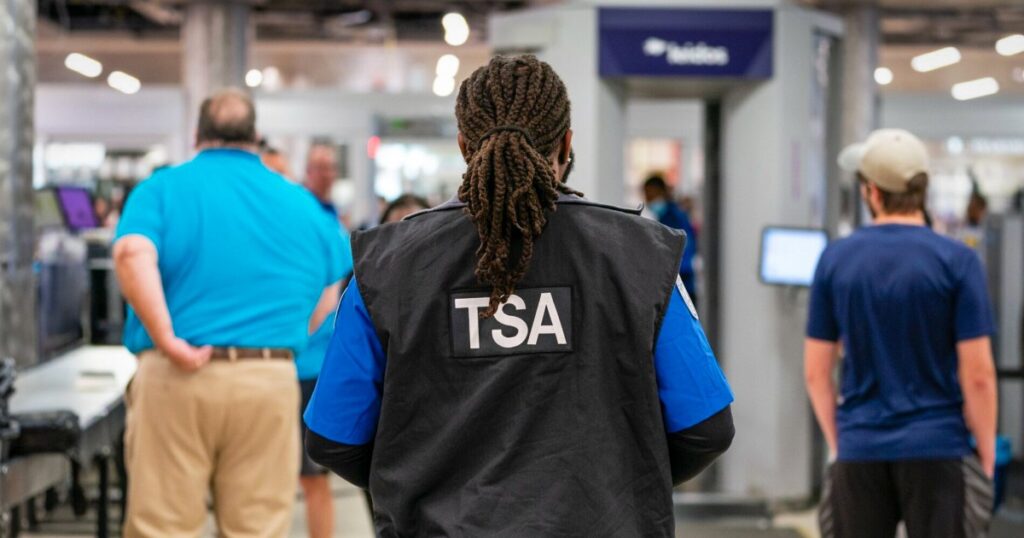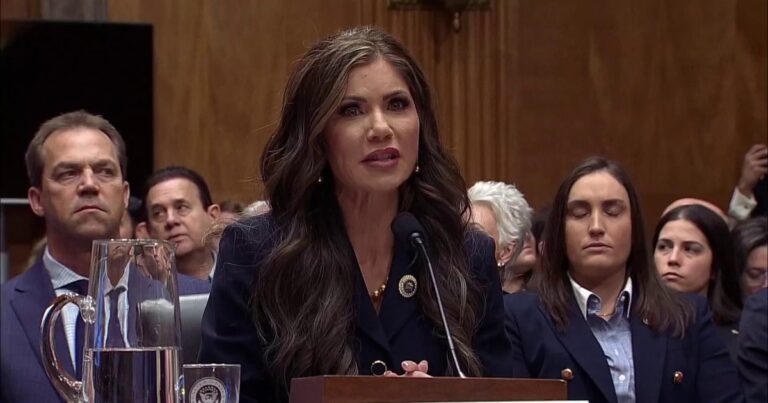
If the government shuts down days before Christmas, holiday travel could be hit but holiday shipping spared.
By Friday morning, lawmakers were still scrambling to reach a deal that would avoid a U.S. government shutdown at 12:01 a.m. Saturday, after President-elect Donald Trump throttled a bipartisan funding bill Wednesday.
There hasn’t been a government shutdown since 2019 — under the Trump administration. That 35-day budget standoff cost the U.S. economy an estimated $3 billion, according to the Congressional Budget Office.
Follow along for live government shutdown coverage
The duration of any fresh shutdown, should one occur in the coming days, would be anyone’s guess. But these are a few of the ways consumers might feel the impact, and where major services would continue running as usual.
Air travelers could see delays
During the 2019 shutdown, many travelers endured longer lines at airports as some security staffers and air traffic controllers chose not to report to work. Transportation Security Administration workers are deemed essential, meaning they’re required to stay on the job even if the government shuts down.
But without funding flowing, TSA employees’ paychecks would be halted, which could lead to many to simply stay home. If that happens, airport checkpoints could see bottlenecks during the busy holiday travel period, when the TSA has been projecting a 6.2% increase in screening volumes.
“While our personnel are prepared to handle high volumes of travelers and ensure safe travel, please be aware that an extended shutdown could mean longer wait times at airports,” TSA Administrator David Pekoske warned Thursday.
During the last shutdown, TSA officer call-outs increased by up to 300% at Dallas-Fort Worth International Airport, with the national absence rate among airport screeners rising from 3% to 10%, according to research firm Tourism Economics.
Mail and Social Security checks would keep flowing
Although travelers may hit snags in a shutdown, holiday deliveries likely wouldn’t be impacted.
The U.S. Postal Service runs as usual through shutdowns because the independent entity is generally funded by its own sales and services, not by tax dollars. As a shutdown neared in September 2023 — before being resolved just hours before it was set to begin — the Postal Service clarified that it would be able to deliver packages uninterrupted.
However, the deadline for deliveries to arrive by Christmas Day has already passed this year for ground advantage and first-class mail. The Christmas cutoff date for priority mail express is fast approaching, at Dec. 21.
The nearly 73 million people who receive Social Security benefits would keep receiving their checks if the government shuts down. That’s because Social Security is considered a mandatory program that doesn’t rely on the short-term funding that hangs in the balance on Capitol Hill.
But anyone who may need to reach the Social Security Administration for help could experience longer wait times as agency staffers are furloughed. The agency’s staffing is already at a 50-year low, as House Republicans rejected boosting funds for it in the package passed in September.
Stock markets would digest the fallout day by day
A government shutdown threatens more turmoil in a stock market that has endured a rough few weeks, risking higher anxiety for those eyeing their retirement accounts or stock portfolios ahead of the new year.
Stocks rose Friday morning even as investors monitored the turmoil in Washington, which came on the heels of a 10-day string of declines for the Dow Jones Industrial Average, its longest losing streak since 1974. The Dow was up nearly 1% in mid-morning trading Friday, buoyed by encouraging inflation data.
“Government shutdowns have historically had little lasting impact on equity performance,” the investment and tax advisory firm Edward Jones said in a note . “Stocks were positive half the time during the government closures and were higher in most cases three and six months later.”
Still, the threat of a shutdown coincides with fresh signals from the Federal Reserve that it’s planning cut interest rates at a slower pace than initially thought. That message from the central bank Wednesday sent the Dow tumbling, with the index notching its worst trading day since August.
Mark Hackett, chief of investment research at Nationwide, said Thursday that markets were already on the decline after repeatedly soaring to new heights in 2024. He said the recent downturns marked a “due” pullback after the S&P 500 hit records 57 times this year.
Prospective government shutdowns, on their own, usually trigger on Wall Street a “very short emotional reaction followed by not very much,” Hackett said, in line with the Edward Jones analysts. But, he added, the combined impact of the Fed decision and the shutdown risk has affected an already sensitive market like “two cans of gasoline being thrown on a fire.”













